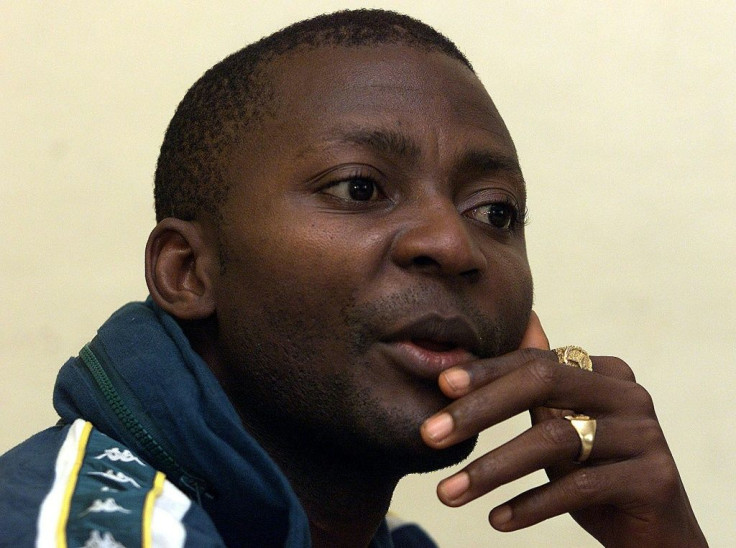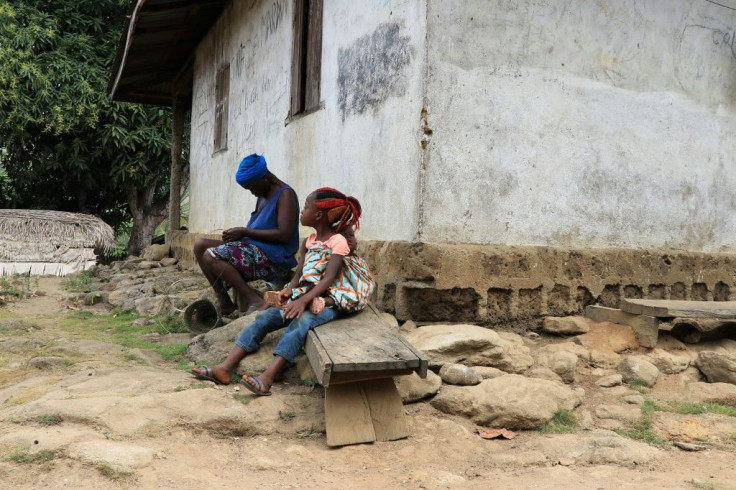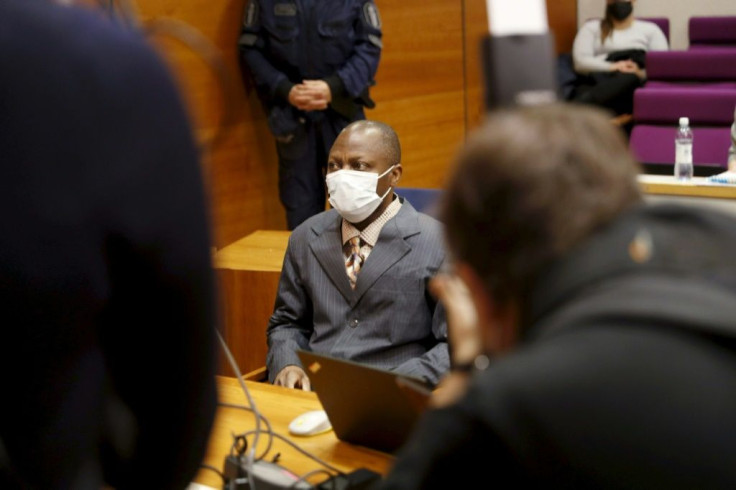Hearings Begin In Landmark Liberia War-crimes Trial
A Finnish court began hearing witness testimony in Liberia's capital Monrovia on Tuesday, as part of a first-of-its-kind war-crimes trial in the country.
The court is sitting in the West African state for a case against Gibril Massaquoi, a former senior member of the Revolutionary United Front (RUF), a Sierra Leone rebel group that also fought in Liberia.
Massaquoi, a Sierra Leonean national, has lived in Finland since 2008, but was arrested there in March last year after a rights group investigated his war record.
A case against the 51-year-old began on February 3 in Finland, where he is accused of responsibility for war crimes and crimes against humanity committed between 1999 and 2003.
But in a landmark move, the Finnish judges are also hearing evidence on Liberian soil -- the first time war-crimes proceedings have taken place in the country.

Around a quarter of a million people were killed between 1989 to 2003 in a conflict marked by brutal violence and rape, often carried out by child soldiers.
Very few people have faced trial for war crimes committed in Liberia, and none inside the country itself.
Thomas Elfgren, a senior Finnish investigator associated with the case, characterised the proceedings as "historical" but said they were not comparable to an international tribunal.
"At the end of the day, it's a Finnish court which will make a decision in Finland," Elfgren said.
Finnish law allows the prosecution of serious crimes committed abroad by a citizen or resident.

The trial began on Tuesday with testimony from a prosecution witness, an AFP journalist said.
The witness said that she and a friend had met Massaquoi as they were leaving rebel territory in 2000, and that he had told them he would take them "to heaven".
They were then shot at and her friend died, the witness said.
An official close to the case told AFP that the court would be interviewing three witnesses Tuesday during the hearings which are taking place at an secret location in Monrovia for security reasons.
"We should keep in mind that there is always the possibility that someone is unhappy with what we are doing," he said.

Hearings will continue for several weeks, at a rate of about 10 witnesses a day, the official said, who added that the testimony was likely to be harrowing.
Finnish court documents seen by AFP detail a litany of accusations of abuse committed or ordered by Massaquoi, including murder, rape, torture, enslavement and using child soldiers.
Atrocities against civilians were common during the war, with drugged-up fighters chopping off people's limbs.
Last week, Finnish judges and lawyers visited remote villages in northern Liberia which are central to the case against the former rebel commander.
In one village, according to the court documents, witnesses said fighters raped at least seven women in a raid, and killed and dismembered some other villagers, whom they ate.
Massaquoi insists he was involved in peace negotiations elsewhere in the region at the time.
He was to follow Tuesday's proceedings by video link from Finland, according to the official close to the case.
In a twist of fate for Massaquoi, he once himself provided evidence to the International Criminal Court (ICC) in 2003, for the separate civil war in neighbouring Sierra Leone.
The former RUF member received legal immunity for his role in Sierra Leone's conflict in exchange for his evidence, and subsequently moved to Finland.
But he did not receive immunity for his alleged actions in Liberia, and Finnish police opened an investigation in 2018 after a probe by rights group Civitas Maxima.
Only a handful of Liberians, including former warlord-turned-president Charles Taylor, have been tried and convicted for their role in the war, and all in jurisdictions outside the country.
There are regular appeals to establish a war-crimes tribunal in Liberia itself, but some ex-warlords remain powerful figures in impoverished nation. President George Weah has so far resisted the calls.
But Liberia's government consented to the Finnish court operating on its soil, which investigator Elfgren said was crucial.
The official close to the case also said there had been "straightforward cooperation" between the Finnish court and Liberia's ministry of justice.
© Copyright AFP 2024. All rights reserved.











